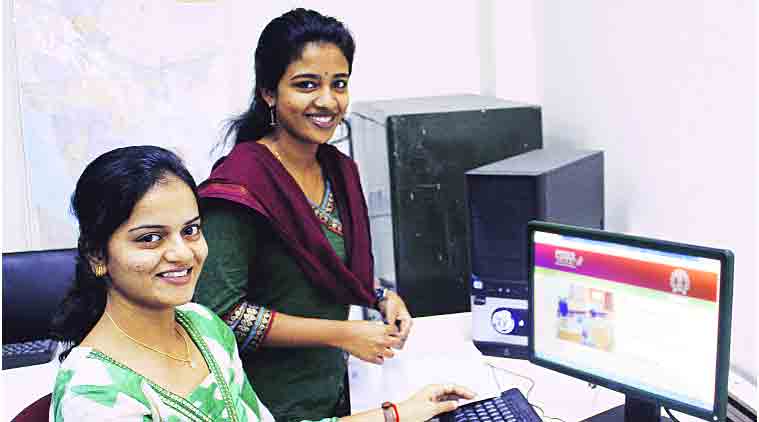Stay updated with the latest - Click here to follow us on Instagram
A class apart at IIT-Bombay
Some students of IIT Bombay takes an unconventional career decision.
 Indrayani Nishane and Sandhya Seetharaman, two students of IIT-B.
Indrayani Nishane and Sandhya Seetharaman, two students of IIT-B.
Shunning dreams that many IITians have of working for a global giant and becoming perhaps a multi-millionaire, Indrayani Nishane (25) wants to spend the next two years studying technological and policy interventions that can enable rural youth in India, who are deprived of stable employment opportunities. Like her, Sandhya Seetharaman (24) wants to focus on rural India and bring in sustainability assessments for rural road projects. The two final-year students of CTARA belong to an increasing breed of youngsters, who are choosing to work in the social sector or start their own ventures over fat paychecks. Both will get a monthly stipend of Rs 12,000 initially and Rs 60,000 in the second year. But money, they said, is not an issue.
“I am in my final year of Mtech in technology and development at IIT Bombay and want to use my engineering background and focus on the technological perspectives of development. In April 2014, we got an opportunity to look at fellowships from the Ministry of Rural Development (MRD). But rural development work is not so lucrative in terms of pay-packets and I too had to face endless queries from family and friends. But I was clear on what I wanted to do and chose the two-year fellowship by opting for deferred placements,” said Nishane. The primary objectives of the fellowship will be to understand the major issues arising in the way of achieving sustainable livelihoods and the policy solutions offered through various governmental agencies & programmes like National Rural Livelihoods Mission (NRLM) and National Skill Development Corporation (NSDC).
Seetharaman will evaluate environmental safeguards in district rural roads plans under the Pradhan Mantri Gram Sadak Yojna (PMGSY). “The project would require work in real-time rural road projects at the district level, to understand the dynamics of planning and project management. This would aid in recommending appropriate framework for planning and implementation of environmental safeguards in rural road projects,” she said.
This year, 11 students at IIT Bombay were selected for the institute’s deferred placement policy, a considerable rise from one last year and none in 2012, when it was introduced. According to the policy, students who want to start their own firm or work in the social sector, by moving away from the safety net of a regular campus placement, have a cushion to fall back upon. The current batch can come back and be part of the 2016-17 campus placements.
Currently pursuing his masters in manufacturing engineering from IIT Bombay, Abhijit Patil (25) has always been driven by a passion to create employment opportunities. “After my bachelors, I joined a company, but I found that job was not my cup of tea. I quit and decided to study further to start my own technology-based company and joined IIT Bombay, where I explored the field of entrepreneurship. Challenges and risks were there at every step, but my vision kept me going. We have developed India’s first photogrammetry-based portable 3D scanner and mobile app to preserve life-changing moments,” said Patil, who has co-founded “Dimension NXG Pvt Ltd” along with Pankaj Raut and Gaurav Godbole. It provides 3D printing and 3D scanning solutions. They have been catering to IIT students and professors for the last eight months.
Kumar Keshav (23), a mechanical engineering student, who opted for deferred placements, is working on a venture named Omnikart.com, which is an e-commerce platform very different from a Flipkart or Myantra, and deals with equipments related to research, development and industrial supplies.
“In my last four years at IIT Bombay, I have worked on various projects related to robotics and many of us felt that there is a need of equipments, electronics, mechanical and hardware tools. We would mostly buy them from markets in Mumbai, which are ad hoc and scattered. Hence, we decided to create an e-commerce platform and make these rare things available at one place, to serve as a source for research in building things, said Keshav, co-founder of Omnikart.







